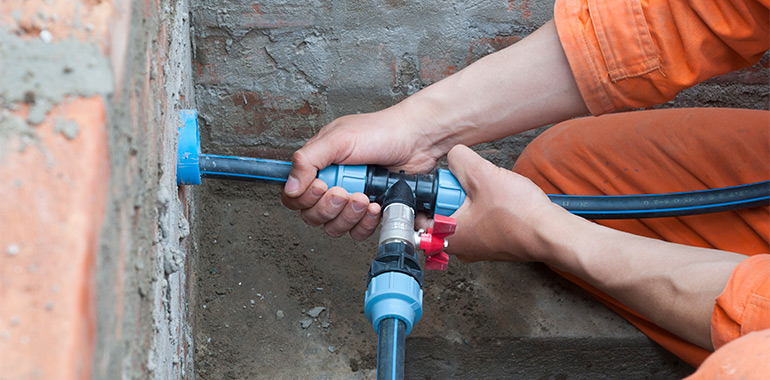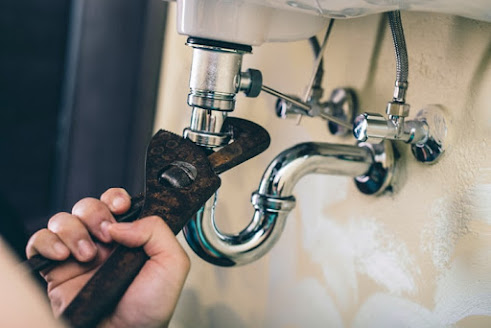We have discovered the article pertaining to Why Do My Pipes Make Noises listed below on the net and think it made perfect sense to write about it with you on this page.

To detect loud plumbing, it is very important to identify first whether the unwanted sounds take place on the system's inlet side-in various other words, when water is transformed on-or on the drain side. Noises on the inlet side have varied reasons: extreme water stress, worn valve and tap components, incorrectly linked pumps or other appliances, incorrectly positioned pipeline fasteners, and plumbing runs containing too many limited bends or various other limitations. Noises on the drain side generally come from poor location or, similar to some inlet side noise, a layout having limited bends.
Hissing
Hissing noise that occurs when a tap is opened a little typically signals excessive water stress. Consult your neighborhood water company if you suspect this trouble; it will certainly be able to tell you the water stress in your area and can mount a pressurereducing shutoff on the incoming water supply pipeline if required.
Thudding
Thudding noise, usually accompanied by trembling pipes, when a tap or home appliance valve is switched off is a condition called water hammer. The sound as well as vibration are triggered by the reverberating wave of stress in the water, which unexpectedly has no place to go. Occasionally opening a shutoff that discharges water promptly right into a section of piping consisting of a restriction, arm joint, or tee fitting can create the same problem.
Water hammer can typically be healed by setting up installations called air chambers or shock absorbers in the plumbing to which the issue shutoffs or faucets are connected. These gadgets allow the shock wave produced by the halted flow of water to dissipate airborne they contain, which (unlike water) is compressible.
Older plumbing systems might have short upright areas of capped pipe behind wall surfaces on faucet runs for the very same purpose; these can at some point fill with water, minimizing or destroying their efficiency. The cure is to drain the water supply completely by shutting down the main water system valve as well as opening up all faucets. After that open up the main supply shutoff and close the taps one at a time, starting with the tap nearest the valve and also ending with the one farthest away.
Chattering or Shrilling
Intense chattering or shrieking that takes place when a valve or faucet is activated, and that typically goes away when the fitting is opened completely, signals loosened or defective internal components. The remedy is to replace the valve or tap with a brand-new one.
Pumps and home appliances such as cleaning machines as well as dishwashing machines can move electric motor noise to pipes if they are incorrectly attached. Link such products to plumbing with plastic or rubber hoses-never stiff pipe-to isolate them.
Various Other Inlet Side Noises
Squeaking, squeaking, scratching, snapping, and also touching usually are caused by the growth or tightening of pipelines, generally copper ones supplying hot water. The sounds happen as the pipelines slide versus loosened fasteners or strike nearby house framing. You can commonly determine the area of the problem if the pipes are exposed; simply follow the noise when the pipelines are making sounds. Most likely you will find a loosened pipeline hanger or an area where pipes lie so near to flooring joists or various other mounting items that they clatter against them. Attaching foam pipe insulation around the pipelines at the point of call should remedy the issue. Make certain straps as well as hangers are safe as well as supply appropriate assistance. Where feasible, pipe fasteners ought to be connected to enormous architectural components such as foundation walls instead of to framing; doing so reduces the transmission of vibrations from plumbing to surfaces that can magnify as well as transfer them. If connecting bolts to framework is inevitable, cover pipelines with insulation or various other resistant product where they speak to bolts, and also sandwich completions of brand-new bolts in between rubber washing machines when installing them.
Fixing plumbing runs that suffer from flow-restricting limited or many bends is a last option that ought to be undertaken just after getting in touch with a knowledgeable plumbing specialist. Sadly, this situation is rather typical in older houses that may not have actually been developed with indoor plumbing or that have seen numerous remodels, particularly by amateurs.
Drain Sound
On the drain side of plumbing, the chief objectives are to get rid of surfaces that can be struck by dropping or hurrying water and to shield pipelines to include unavoidable audios.
In new building and construction, tubs, shower stalls, commodes, and also wallmounted sinks as well as basins should be set on or versus durable underlayments to decrease the transmission of sound via them. Water-saving commodes as well as faucets are much less loud than traditional models; install them as opposed to older kinds even if codes in your area still allow utilizing older fixtures.
Drainpipes that do not run up and down to the basement or that branch into horizontal pipeline runs supported at flooring joists or other mounting present specifically problematic sound issues. Such pipelines are big sufficient to radiate substantial vibration; they additionally bring significant quantities of water, which makes the circumstance worse. In brand-new construction, define cast-iron soil pipelines (the large pipelines that drain pipes bathrooms) if you can manage them. Their massiveness has much of the sound made by water passing through them. Additionally, prevent transmitting drainpipes in wall surfaces shared with bed rooms and also rooms where individuals gather. Walls having drainpipes need to be soundproofed as was described previously, making use of double panels of sound-insulating fiberboard and also wallboard. Pipes themselves can be covered with unique fiberglass insulation made for the function; such pipelines have an impervious plastic skin (sometimes including lead). Outcomes are not always satisfying.
If Your Plumbing is Making These Sounds, There’s a Problem
A Bang or Thump When You Turn Off a Faucet
If a loud bang or thump greets you each time your turn off running water, you likely have a water hammer. A water hammer occurs when the water velocity is brought to a halt, sending a shock wave through the pipe. It can be pretty jarring — even worse, damaging to your plumbing system. All that thudding could loosen connections.
Strange Toilet Noises
You’re so familiar with the sounds your toilet makes that your ears will be attuned to anything out of the ordinary. Fortunately, most unusual toilet noises can be narrowed down to just one of several problems.
Foghorn sound:
Open the toilet tank Flush the toilet When you hear the foghorn noise, lift the float to the top of the tank If you’re ambitious, you can remove the ballcock valve and disassemble it to replace the washer. Or you can more easily replace the ballcock valve entirely. This device is relatively inexpensive and available at most any hardware store.
Persistent hissing:
The hissing following a flush is the sound of the tank filling. It should stop once the tank is full. But if the hissing continues, it’s likely because water is leaking out of the tank. The rubber flap at the bottom of the tank can degrade, letting water slip through and into the bowl. That’s why the tank is refilling continuously. Fortunately, this is an easy fix:
Cut the water to the toilet by closing the shutoff valve on the water supply line. Flush the toilet to drain the tank. Disconnect the flapper Attach the new flapper Gurgling or bubbling:
Gurgling or bubbling suggests negative air pressure in the drain line, likely resulting from a clog. As air releases, it causes the water in the toilet to bubble. This could either be a minor issue or a major one, depending on the clog’s severity. Clogs can be caused by toilet paper or more stubborn obstructions such as tree roots. If you can’t work out the clog with a plunger, contact a professional plumber for assistance because a clog of this magnitude could lead to filthy and unsanitary sewage backups in your sink bathtub.

I'm just very eager about Why Do My Pipes Make Noises and I am hoping you liked our page. Sharing is nice. You won't know, you may very well be doing someone a favor. I truly appreciate reading our article about Why Your Water Pipes Are Noisy and How To Shut Them Up.
Schedule Now